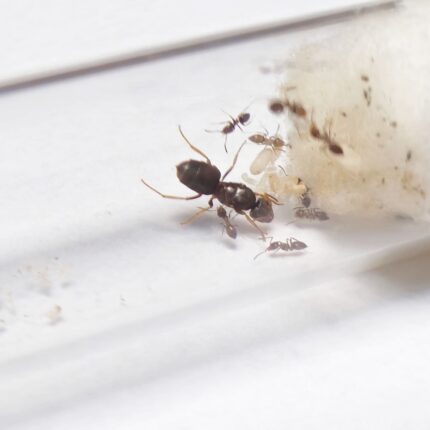
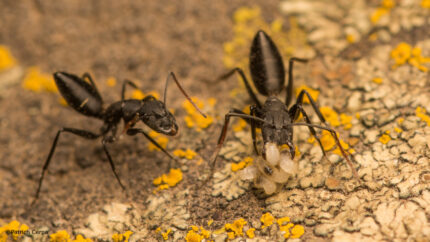
Camponotus spinolae
$164.85 – $302.24Price range: $164.85 through $302.24
Worldwide shipping
Free delivery over 999 PLN
The highest quality of goods
Live delivery guarantee
24/7 Personal Support
Fair Prices
Description
Camponotus spinolae is a medium to large monogynous carpenter ant with colonies up to 10,000 workers, developing quickly and showing strong polymorphism.
Additional information
| Behavior | |
|---|---|
| Difficulty in breeding | |
| Origin | |
| The size of ants | |
| Wintering |
Camponotus spinolae
Colony Type: Monogynous (occasionally polygynous in founding stages)
Colony Size: Up to 5,000 workers (in mature colonies)
Development Speed: Medium to Slow
Size
• Queen: 13–15 mm
• Workers: 6–12 mm (major polymorphism with large majors and smaller minors)
Color:Striking bicolored appearance – typically red or reddish-brown head and mesosoma with a dark brown to black gaster. Their large size and elegant form make them one of the more visually impressive Camponotus species.
Nutrition
- Food insects (such as cockroaches and crickets) dead, or live if colony is big
- Syrup (a mixture of water and honey or sugar, with a ratio of 3 water:1)
- Fruits and vegetables
- Jelly
- Cooked chicken without salt, shrimps
- Honey
Don’t forget to check out our food products to ensure a well-balanced diet for your colony!
Temperature and Humidity
• Humidity:
Arena: 40–60%
Nest: 50–70%
• Temperature:
Arena: 24–30 °C
Nest: 23–27 °C
Avoid prolonged high humidity in the nest to prevent mold, especially when using organic nest materials.
Unique Traits of Camponotus spinolae
This species is notable for its dimorphic worker caste, which includes large-headed majors and smaller, agile minors. While they lack repletes like Myrmecocystus, C. spinolae are extremely active foragers, and their large colony size and bold behavior make them a pleasure to observe.
They are also known for strong mandibular strength and can subdue live prey effectively. While not aggressive toward humans, they can bite when disturbed.
Recommended Nests
• Acrylic (with moisture chambers)
• Plaster
• YTONG (aerated concrete)
• Wood (well-sealed and monitored for mold)


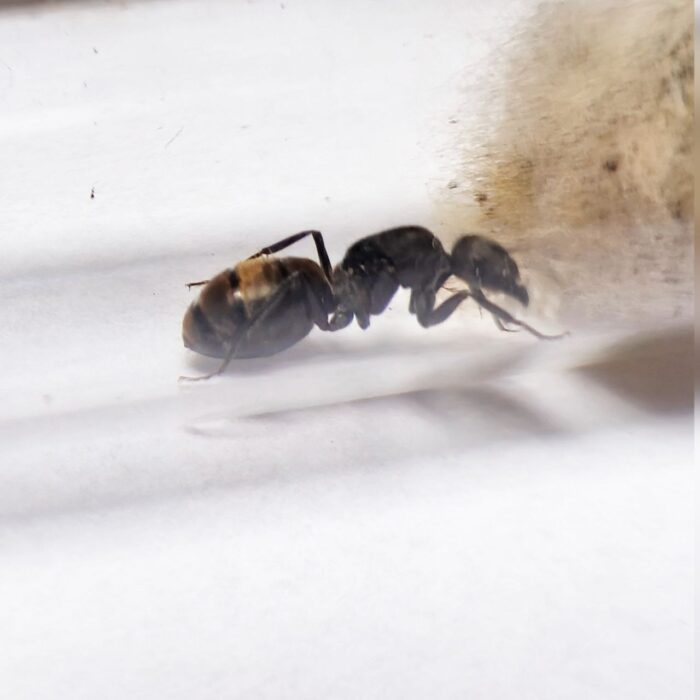
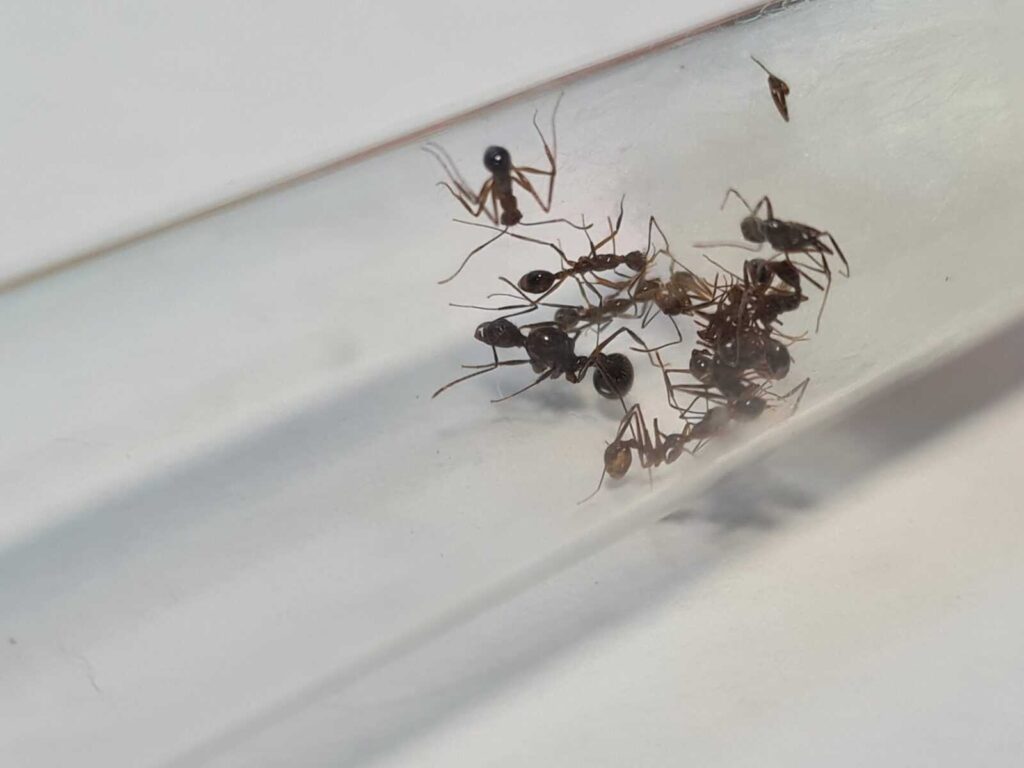
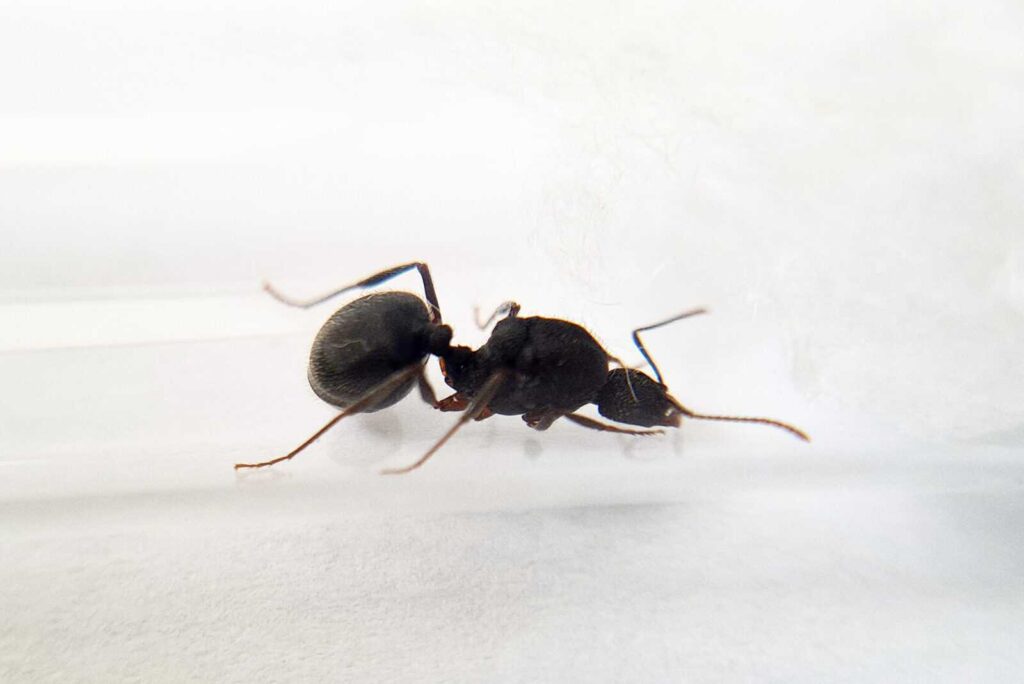
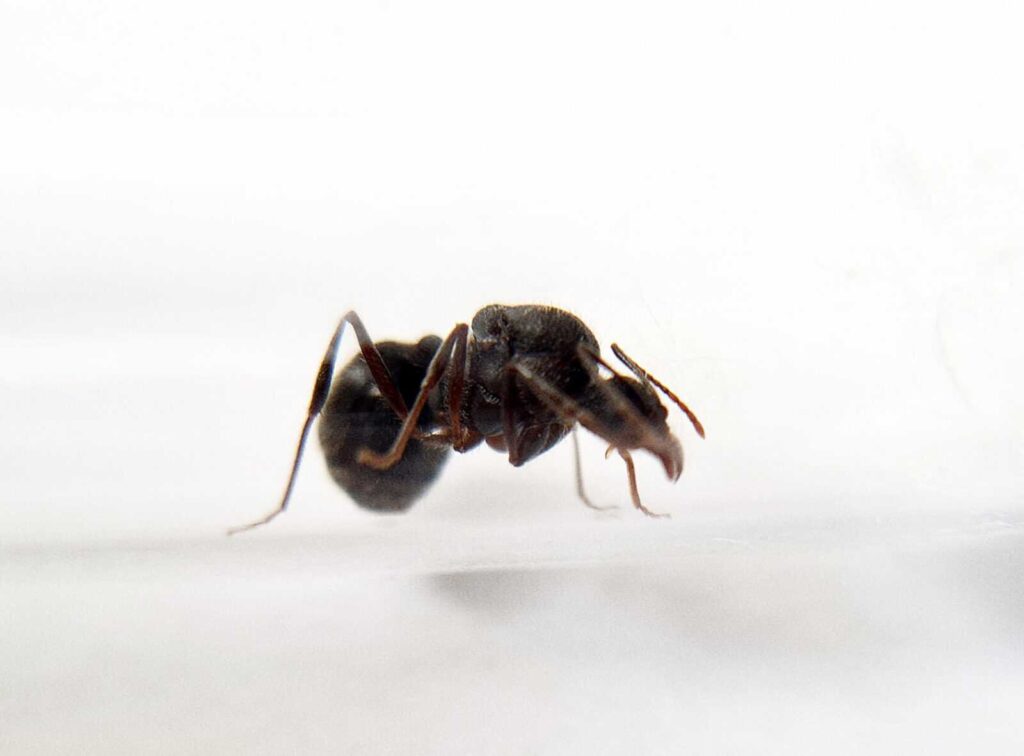
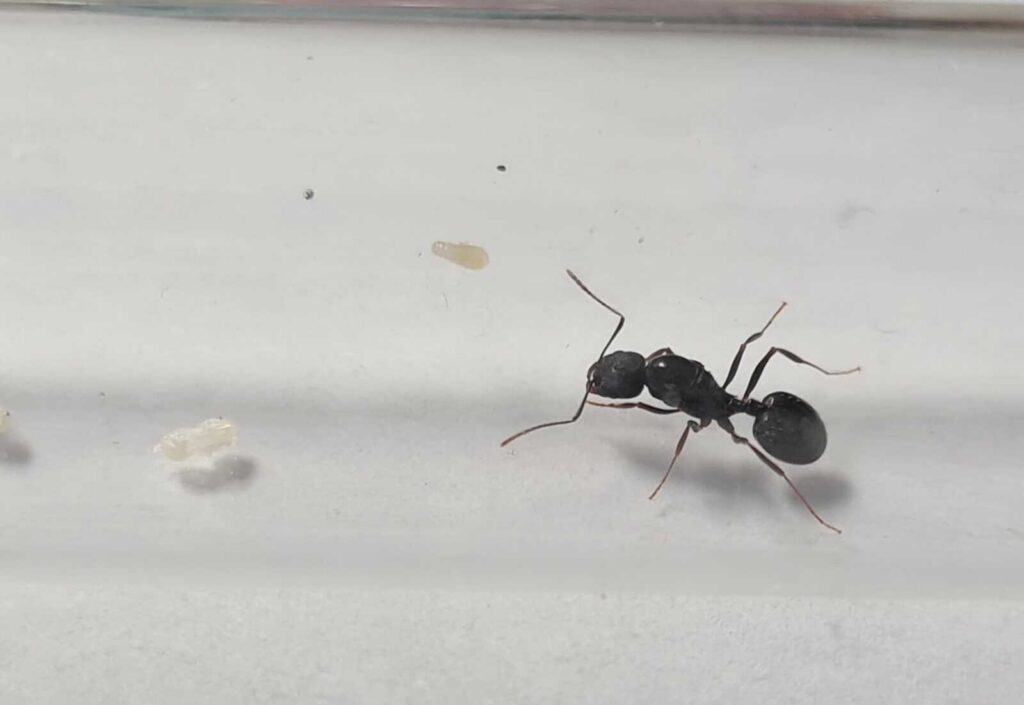
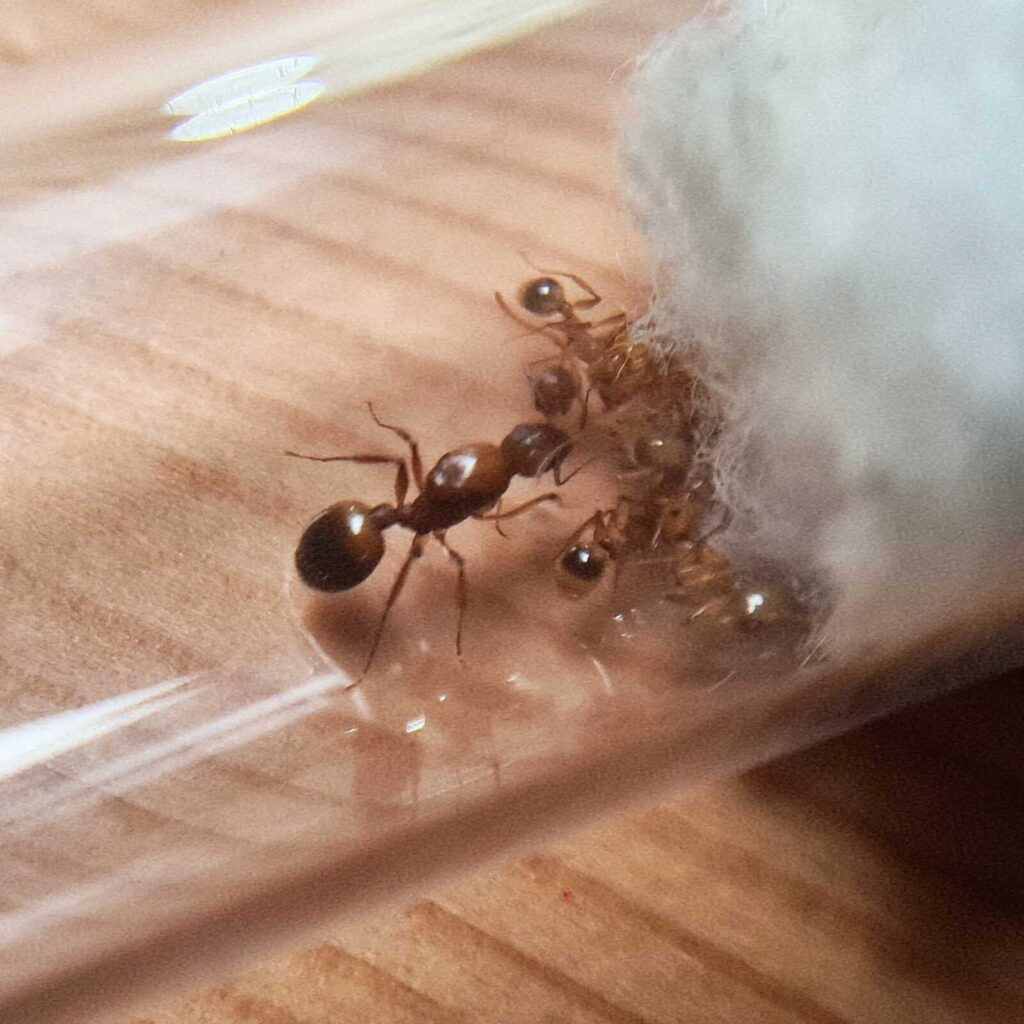
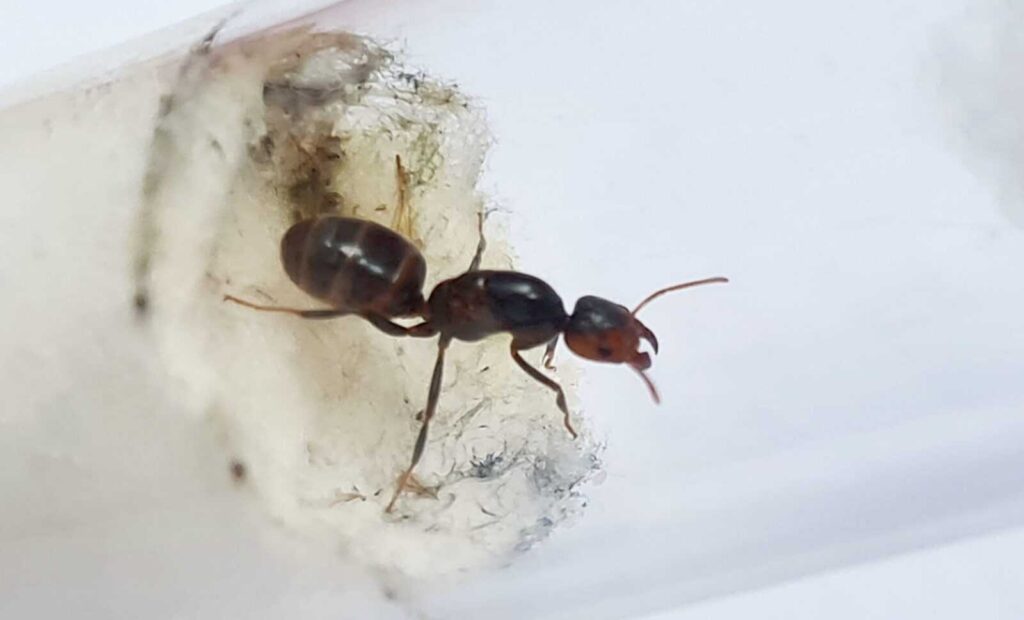

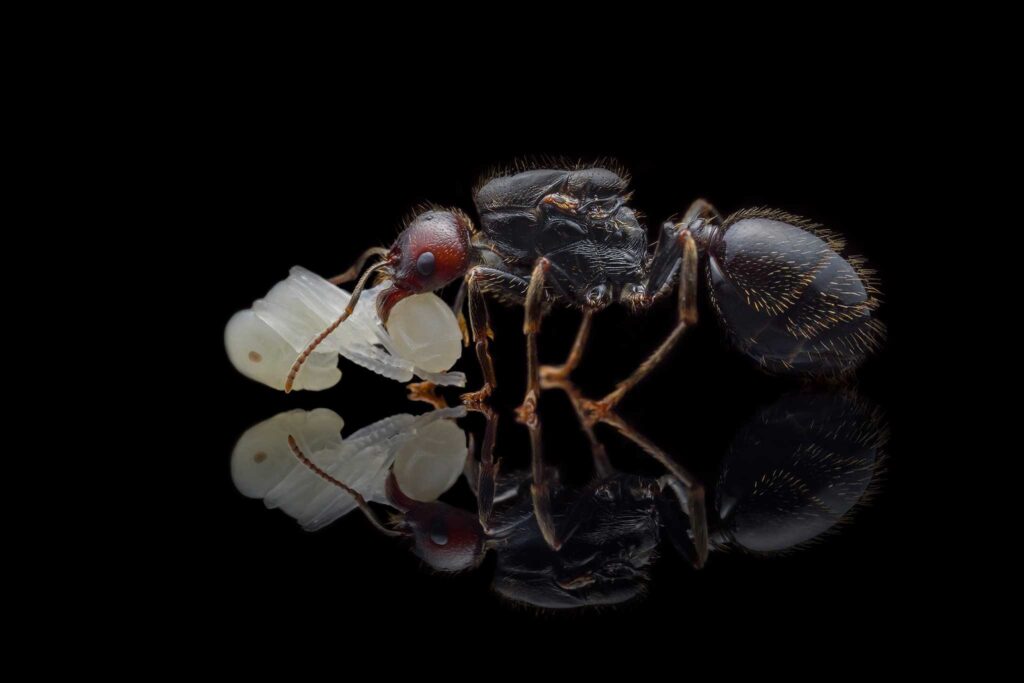
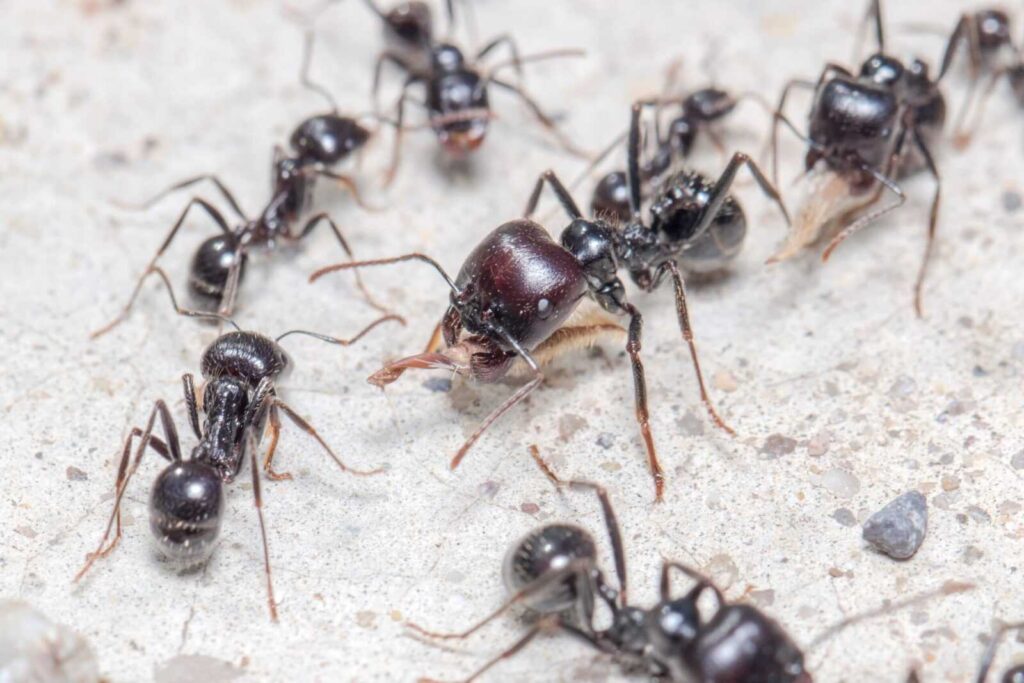
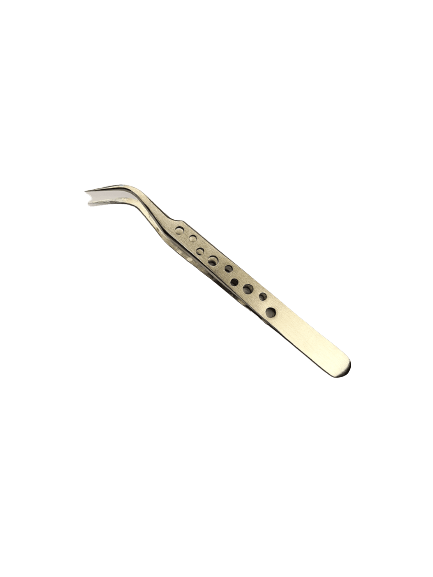
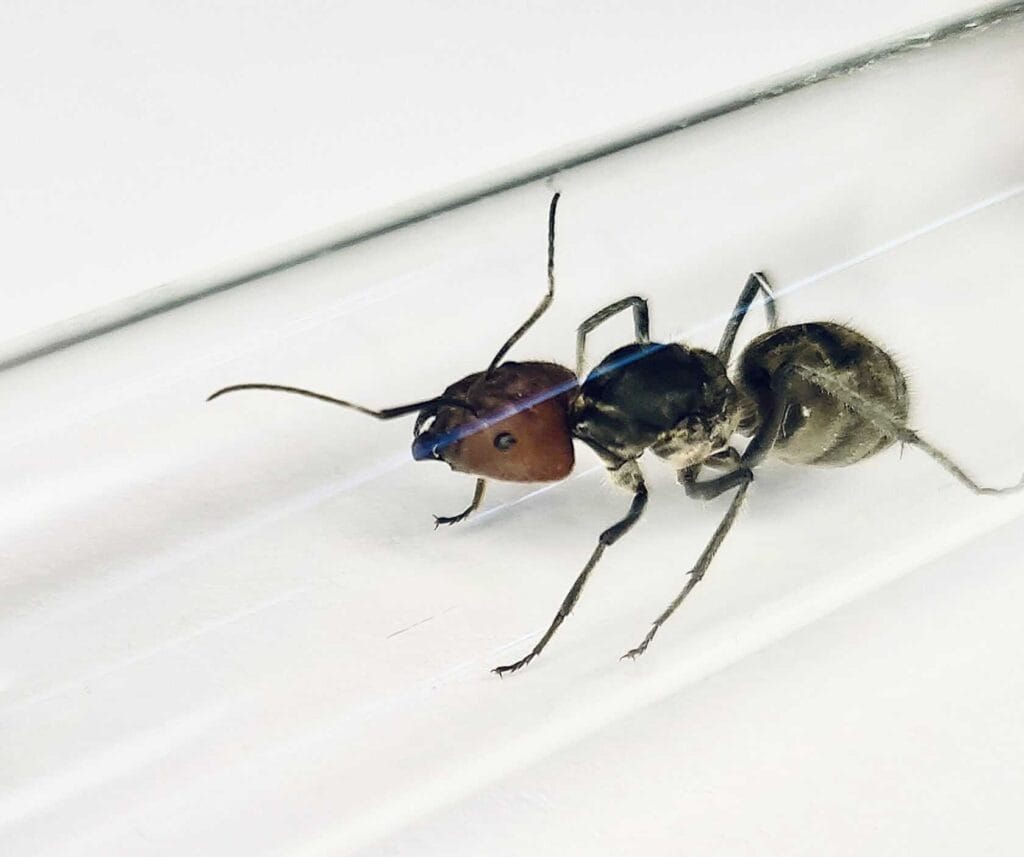
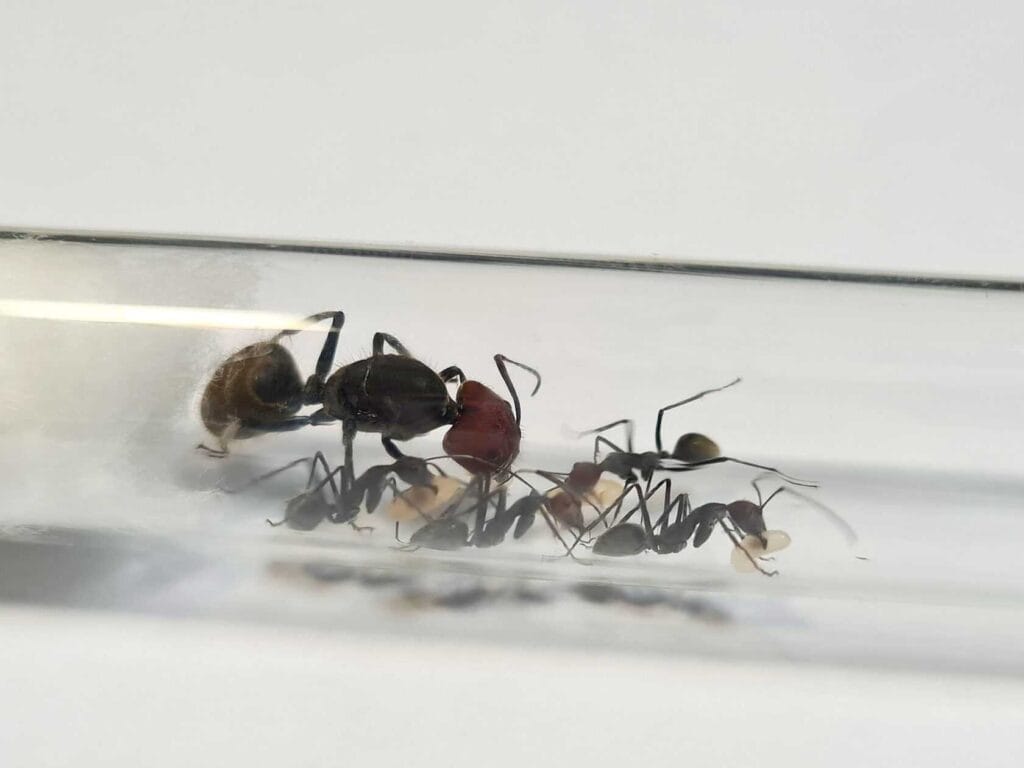


Reviews
Clear filtersThere are no reviews yet.